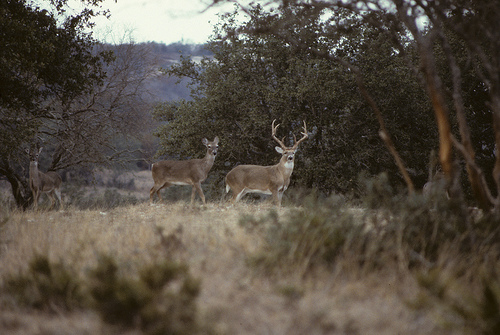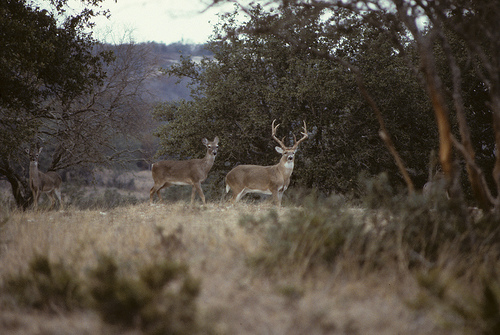Texas is a Chronic Wasting Disease (CWD) free state so far, but state officials cringe each time additional, undocumented white-tailed deer find their way into the state. Sure, some deer do walk across state lines everyday, but the real trouble lies in deer brought into the state illegally each year. Recently, CWD and Bovine Tuberculosis were not detected in more than 300 deer held illegally on an East Texas deer breeding facility, according to findings at the Texas Veterinary Medical Diagnostic Laboratory.
“We are greatly relieved with the results from the CWD disease testing,” said Carter Smith, executive director of the Texas Parks and Wildlife Department. “We take disease issues very seriously because of the potential impacts to Texas’ natural resources, the public’s wildlife, and the multi-billion dollar deer hunting and deer breeding industries.

While the lab results provide a positive conclusion to an extensive epidemiological investigation by state wildlife officials, they do not moderate the illegal deer smuggling of a 77-year-old former deer breeder that led to the need for disease testing. Billy Powell pleaded guilty on June 14 to the felony offense of smuggling at least 37 white-tailed deer, over a 3-year time span, from Indiana, Illinois, and Ohio into Texas in violation of state and federal laws.
For those not aware, CWD has been documented in at least 10 counties in Illinois, posing a direct link for disease risk in Texas as a result of Powell’s illegal importation activities. “It is regrettable that Mr. Powell forced the state to take this action in the first place,” said Smith. “After he repeatedly smuggled deer illegally into Texas and risked introducing devastating diseases into both wild deer herds and penned deer operations, thereby threatening the state with immense economic harm, the Department had no choice but to step in. Quite simply, the hundreds of thousands of deer hunters who go to the field annually in pursuit of wild game and the thousands of landowners who manage the state’s wildlife responsibly don’t deserve to have their enjoyment of wildlife jeopardized by someone who shows such little regard for the public’s resources.”
The implications from a CWD outbreak in Texas’ internationally recognized white-tailed deer population, both free-ranging and captive, would be significant. Deer hunting is an important cultural and recreational component of Texas lifestyle, pursued annually by more than 600,000 sportsmen, and has an economic impact to the state in excess of $2.2 billion a year, according to published reports. In addition, studies show deer breeding activities have an economic impact in Texas of about $650 million annually.
Currently, 20 states and Canadian provinces are tagged as having documented CWD in their whitetail deer, mule deer, elk or moose. The progression of the disease into new areas remains persistent. In 2005, West Virginia detected a positive. Virginia got a confirmed case in 2010 and this year Maryland joined the list of infected states.
More than 1,200 permits are issued annually to deer breeders in Texas covering an estimated 80,000 whitetails held in captivity. The vast majority of deer breeders operate within guidelines designed to minimize risk of disease transmission. Since CWD testing and surveillance efforts were initiated in Texas a decade ago, more than 35,000 deer samples have been submitted for testing. TPWD has tested only about 800 illegally-possessed deer from 32 different violators.
“People ask me if I’m confident we don’t have CWD in Texas after testing that many animals, and I tell them my confidence level grows each year,” said Mitch Lockwood, TPWD’s big game program director. “But, that confidence drops to zero every time we learn about a deer being smuggled into the state. The threat is real and the consequences can be substantial; just ask any of those other states that are dealing with CWD in their deer herds.”
